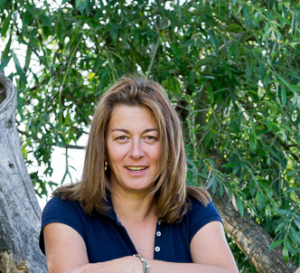Mindfulness as a way of living
The 9 attitudes of Jon Kabat-Zinn
Introduction
Every action we take is linked to our set of beliefs. These together form our mindset, in other words the script that we use for our everyday lives or, to put it another way, the script that runs our lives. It is, however, possible to change our mindset. This requires an intentional reprogramming of the mental script that informs all of our actions. Regularly practicing mindfulness can have a significant impact on our mindset, because mindfulness arrives at the central set of attitudes that make up an individual.
Jon Kabat-Zinn, the father of modern mindfulness training, has identified 9 key attitudes of mindful living that are all interconnected whilst still maintaining their very distinctive features. Deepening these key attitudes can help us to lead better, more satisfied and more successful lives. Intentionally cultivating certain attitudes is also linked to deliberate work on the brain’s attention span and to our ability to act intentionally.
MINDFUL ATTITUDE = ATTENTION * INTENTION
The characteristics and implications of the central mindful attitudes are described below:
1. Non-judgemental awareness
Non-judgmental awareness is central to Jon Kabat-Zinn’s concept of mindfulness of. He defines this as the “awareness that arises through paying attention on purpose in the present moment non-judgmentally”. The real challenge is to be non-judgmental, because when you start to pay attention to what’s on your mind, you very rapidly discover that we have ideas and opinions about almost everything. We’re always judging things – saying “I like that”, “I don’t like that”, “I want that”, “I don’t want that”, “this is great”, “that’s bad”. This steady stream of judging is engrained in our cultures and is often expected or at least highly appreciated, because judging is associated with knowledge and having strong opinions, especially when it comes to leadership positions. When we speak of mindful non-judgmental awareness, this doesn’t mean that you shouldn’t judge at all. It means that you should be aware of how judgmental you actually are, rather than simply judging your instinctive urge to judge. We become aware of how much we can get imprisoned by our judgements. Being non-judgmental also doesn’t mean suddenly becomes naive and having no initiative. It means cultivating the discernment to see what is actually going on, recognising it and understanding it in relation to our previous experience. There is a fine line between discernment, clarity, and wisdom, i.e understanding the connections between things, and a tendency to judge too quickly. We need to recognise that quick judgement actually creates an unhelpful veil, a filter in front of our eyes that doesn’t allow us to see things as they are, instead only seeing them through the lens of our own ideas, opinions, likes and dislikes, all of which obscure our vision. Becoming aware of our tendency to judge and learning not to judge this judging will actually help us to find a way to navigate through our judging in such a way that it no longer dominates our lives. We can start to recognise when it comes up and become aware of its toxicity. The more we challenge it and the more we rest in discernment and cultivate awareness, the more we can live life authentically in the present moment without getting caught by our own unhealthy mental habits.
2. Patience
We live in a commercial society that encourages us to act impulsively and leaves us with very little room to rectify false turns. You may have noticed that we are often impatient for the next important thing to happen in our lives. This impatience means that we miss the present moment. To intentionally cultivate patience we need to realise that things unfold in their own way and that in some profound way things cannot be hurried. When we spend out lives rushing to get somewhere else, the result is that we never really enjoy where we are at the moment. This is a tremendous loss. Sometimes we are impatient with other people, sometimes we are impatient at work, sometimes we are impatient to get things done, but the wisdom of patience is something that can be profoundly healing and restorative. This is a wisdom that understands how things unfold in their own time. Human beings are organic creatures like the nature around them. Impatience is like trying to take a butterfly out of its chrysalis before it is its time. By cultivating an attitude of patience, we see that we can afford to do things more slowly, with more awareness, less stress and less aggression. By learning to be patient, we learn to inhabit the present moment and enjoy great comfort and wisdom. Patience enables us to keep calm under pressure and reminds us to enjoy the small moments of life, because life is made up a series of small moments.
3. Beginner’s Mind
This attitude encourages one to see the world in a fresh way, moment by moment. We live in a world full of artificial entertainment. Learning to reconnect to the experience of the present moment can be an authentically thrilling experience.
Beginner’s mind is a lovely way of bringing us back to the present moment as something that is always fresh, always new, and has never been like this before. We consider ourselves to be experts if our minds are full of our own expertise, but this leaves no space for novelty or new possibilities. In any given situation, the expert sees only a few possibilities, but the beginner’s mind sees infinite possibilities because it comes to the situation fresh and not stuck in its own ideas and opinions on how much it likes this or doesn’t like that or what the outcome of a particular situation might be. This freshness actually leads to tremendous transformative qualities. It is flexible because it doesn’t insist that a situation or group of people must be the way they were in previous years. This benefits both others and ourselves. Ironically, having an innocent and open attitude helps to cultivate creativity and intelligence. If you stop labelling or having pre-conceived opinions of the situation, your whole being is free to engage with the moment and your ability to ‘think outside the box’ is empowered.
4. Trust starts within ourselves
There are so many areas of life that we cannot control – things from the past, present and future. And yet, even in the worst of situations there are often many things that are working well. It is possible to cultivate a greater feeling of trust in the world around you and in your own ability to respond to life’s ups and downs, without being naive or gullible.
Trust is both being trustworthy and trusting. Trust is a recognition that we are not in control of every little thing in our lives and that many things vital to our survival are going on constantly and we take this for granted. We can trust that breath will take care of itself, which is great, because we otherwise would have died a long time ago. We can trust that our breath comes in and goes out again. We can trust that the ears are capable of hearing, that our eyes are capable of sight, that our organs are able to care of our metabolism and internal biology. We can trust ourselves by listening to the subtle signals our body and intuition give us at each moment. The more we can learn to trust ourselves, the more we can actually learn to trust our relationships with other people and to have trust in the other various challenges that we face in life. This means connecting our own confidence in ourselves to meet whatever comes our way. This also means that we shouldn’t think the worst of other people and shouldn’t judge others on the basis of their looks, age, gender or ethnicity.
Trust is also a type of confidence in yourself and in the world. Trust is not the same as being gullible or being weak. Trust still means that we are capable of distinguishing between friend and foe. If we trust the ongoing process of non-judgemental awareness we will be healthy, will be able to heal, and will be able to handle difficult situations with grace and dignity.
5. Non-striving
When cultivating a mindful awareness, we need to arrive at a position that is unusual for Westerners, namely not trying to get anywhere else. This is what we call non-striving or non-doing. It means that we allow things to be held in awareness without having to operate on them. We don’t try to make anything happen or to experience some special state, whether a state of relaxation, well-being, or anything else. Instead, we simply let life unfold from moment to moment. There is no manipulating, changing or forcing things in any way that would put you directly into the flow of now. Non-striving is not about having no goals or being aimless, it is the ability to go with the flow. We think without any agenda whatsoever. This is a tremendously healing and restorative experience for us because we have so many agendas and are always on the way to some better moment in the future or trying to escape from something in the past. We instead aim to be in a place where we are no longer striving or doing, but are just letting things be as they are. This is not easy to do because we have so many different items on our to-do list.
This is a way of acting without trying to act. Action happens by itself, spontaneously – rather than being contrived. It is more direct and natural and therefore more effective and appropriate.
6. Acceptance
Acceptance is an active process. There is nothing passive about it. It is not a passive resignation but an active recognition that things are the way that they are. Sometimes we do not want them to be like they are. Resistance to the way things are is a major cause of mental and emotional suffering, because we are fighting against reality itself. Acceptance doesn’t mean that we can’t work to change the world or our circumstances in some way or other. It rather means that, unless we accept things as they are, we will try to force things to be as they are not. This generates an enormous amount of difficulty. The best place for transformation to begin is in a clear awareness of the situation, which must include a level of acceptance. When we recognise the actuality of things, we have the potential to apply wisdom in the search of actually shifting our own relationship to what is occurring in ways that might be profoundly healing and transforming. Without first accepting a situation it is very difficult to know where to stand, and without knowing where to stand, it is very difficult to take the first step. Some things are very hard to accept, for example when we experience physical pain and don’t know where it’s coming from. It’s very difficult to accept because we want to know what it is and where it’s coming from. When we don’t have any answers for what is causing the pain it’s very difficult to accept it, but experience in working with those who suffer from chronic pain shows that before anyone can actually work with pain and suffering, they need to first welcome it and accept it as it is. Acceptance is a gateway to freedom from suffering.
7. Letting go
Letting go reminds us that we can let things be. Letting go means letting go of being caught in desires for things to be different or being fixated with an idea.
Letting go reminds us that do not need to get involved in grasping or clinging to what we want and trying to push away what it is that we don’t want because it’s inevitable that unpleasant things will arise. Letting go therefore means letting be, it means allowing things to be as they are and not getting caught up in having to have them a certain way when we already know that they are not that way. This corresponds with non-striving as we allow things to be as they are. Some Indians use a special technique to trap monkeys. They take a coconut and cut a small hole in one end, before tying the coconut with a wire to a tree. They then put a banana inside the coconut and watch as the monkeys come down their trees, put their hand inside the coconut and grab the banana. The hole is crafted in such a way, however, that the monkeys cannot withdraw their fists whilst holding the banana. Because the monkeys do not want to let go they become trapped. Letting go is the key to freedom, because as we cling to things we put ourselves in a self-imposed prison. By letting go we stop fighting and resisting change. By letting go we can trust the process.
8. Gratitude
Jon Kabat-Zinn initially just wrote 7 attitudes of mindfulness, but he later extended this to include the important aspects of gratitude and generosity. Gratitude is a way to protect your mind from constantly complaining and finding the negative in things. It means enjoying the present moment with a sense of admiration and humility. By slowing down and bringing gratitude into our present moment, we can foster a sense of delight and learn to focus on the positive in life. We can be grateful for the present moment because we’re alive. We take so much for granted. Our bodies are working, we are breathing in and breathing out, our eyes are working, our feet can take us where we need to go, our kidneys are working. We take so much for granted. Even when things are bad, we have the opportunity to be grateful for surviving them and learning from those events. Gratitude is always an option, and it is a very healthy option.
9. Generosity
Giving someone your presence is the greatest present of all. In fact, often all that our colleagues and family members want is our attention. Being generous means acknowledging that there is more happiness found in giving than clinging on to things. How powerful it is when you give yourself over to life and give others what makes them happy rather than thinking of yourself and expecting a to pat yourself on the back. Being a generous person gives joy to others and it enhances interconnectedness. You demonstrate that you care and that you are actually giving some time and attention to others rather than only to yourself. Generosity engenders a warm heart and a kind attitude. Jon Kabit-Zinn describes mindfulness as another way of saying heartfulness. An open and generous attitude of sharing yourself with others is the foundation for healthy relationships.
Jon’s conclusion
All of the above attitudes are intimately linked, which is why they are really just different ways of describing what mindfulness is all about. In all Asian languages, to word for mind and body are part of the same word. This means that in English the word mindful incorporates a heart-fullness – the above attitudes are really about the heart.
The most profound part of seeing things as they actually are is to see the interconnectedness of all things. When you see this, you will understand that emotions such as anger can be transformed into some other feeling on the basis of our interconnectedness.
In some ways, this is about being able to see other people as they really are and not thinking of them as threats to us.
The magic behind these attitudes lies in realising that cultivating these habits makes our lives more liveable and more enjoyable from the inside out. All of them are interconnected and support each other, thus allowing us to see reality, emotions and people with different eyes, expectations and energy.
Bibliography
-
- Jon Kabat-Zinn, Full catastrophe living, using the Wisdom of your Body and Mind to face Stress, Pain and Illness, 1990, Bantam Books
- Jon Kabat-Zinn, Mindfulness for Beginners: Reclaiming the Present Moment and Your Life, 2016, Sounds True; Reprint edition (July 1, 2016)
- https://www.thewayofmeditation.com.au/9-attitudes-deepen-mindfulness/
- https://mrsmindfulness.com/9-meditation-tips/
- https://www.youtube.com/watch?v=aOGsj0Aklx8
Paola Bortini
 For the past 20 years I have been fascinated with strengthening people and organisations throughout Europe in liminal phases to learn from and for the future with creativity and in harmony with their inner call. At the centre of my methodological approach is above all mindfulness, Otto Scharmer’s “Theory U”, embodiment practices and the healing power of nature and essential oils. Born in Italy, I have lived and worked in many countries. I am currently living in Austria and serving as the president of alp and co-founder of LIMINA and emotion-wise network.
For the past 20 years I have been fascinated with strengthening people and organisations throughout Europe in liminal phases to learn from and for the future with creativity and in harmony with their inner call. At the centre of my methodological approach is above all mindfulness, Otto Scharmer’s “Theory U”, embodiment practices and the healing power of nature and essential oils. Born in Italy, I have lived and worked in many countries. I am currently living in Austria and serving as the president of alp and co-founder of LIMINA and emotion-wise network.
I am certified as an emotions mentor and with AromaTouch, MBSR, Mindful Self-compassion and Mindfulness in Education (with school, teachers and parents), Social Presencing Theater of Arawana Hayashi.


